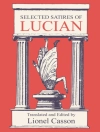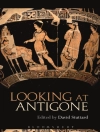The volume focuses on the evidence of scenic art present in Quintilian’s Institutio oratoria to verify its influence on the education of the speaker. The enquiry will also make reference to all Greek and Latin sources useful in highlighting the mutual dependence between oratory and theater from the fifth century B.C. to the second century A.D. The most important area of investigation concerns the teaching of comoedus, master of diction and gestures. The fields of specialization and methods configured by Quintilian recall in detail the training process followed by Demosthenes to achieve excellence in the actio under the guidance of different actors; this close similarity suggests a persistence of training relationships between theater and oratory. The choice of comoedus is based on well-defined selection criteria: in particular, the comedy seems to have replaced the tragedy as the teaching model in the imperial era because of its greater verisimilitude. The enquiry extends to the acting techniques used in the imperial era, with particular attention to the mask and the strategies of identification that the actor could suggest to the speaker to activate the process of sympatheia with the public.
Giới thiệu về tác giả
F. R. Nocchi, Università degli studi di Cassino e del Lazio Meridionale, Rome.












